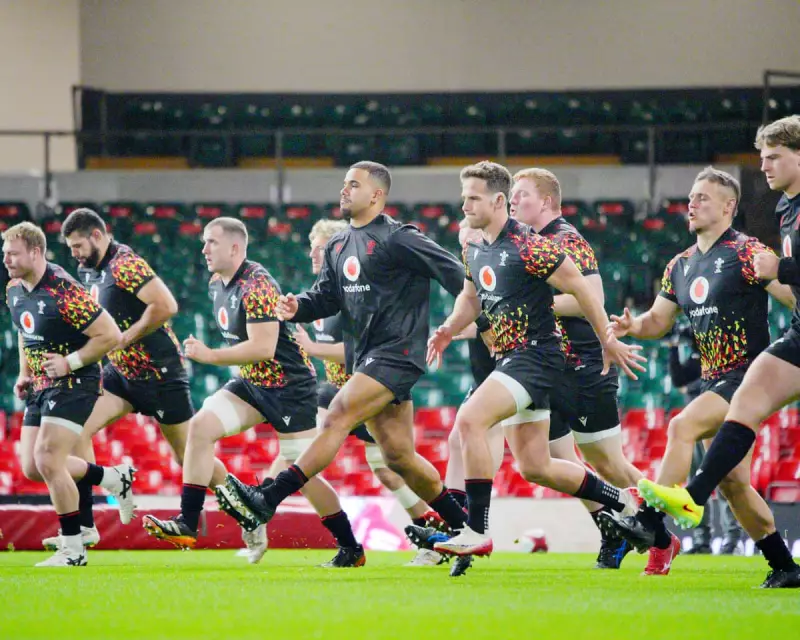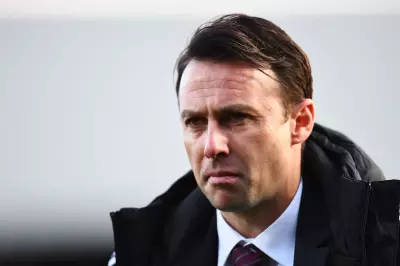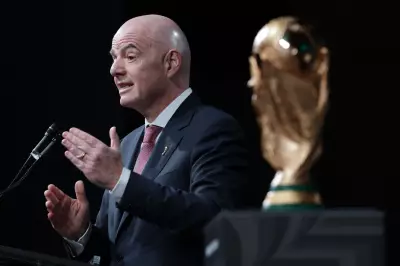
A Stadium of Hope Amid Welsh Rugby's Deepening Crisis
On a rain-swept Wednesday afternoon, an extraordinary scene unfolded at Cardiff's Principality Stadium. Six thousand supporters filled the stands not for an international match, but to watch a Wales training session during the half-term break. The free event, requiring only a £1 booking fee, provided temporary distraction from the gathering storm clouds threatening Welsh rugby's very foundation.
Structural Collapse and Widespread Distrust
The Welsh Rugby Union finds itself navigating multiple crises simultaneously. Just days before the training session, the WRU announced a radical plan to revitalise the sport, revealing they intend to scrap one of Wales' four regional teams. While most agree the current model is overstretched and underfunded - no Welsh team has finished in the United Rugby Championship's top seven since before the pandemic - the implementation has sparked widespread concern.
Speaking with supporters Mervyn and Steve from Pontypridd in the stadium's back rows, the depth of scepticism becomes apparent. Their regional side, the Celtic Warriors, was formed in 2003 through a merger only to enter liquidation twelve months later. When asked if they trust the WRU to handle the current restructuring correctly, Mervyn's derisive snort speaks volumes.
The national team's performance mirrors the administrative chaos, having recently broken an 18-game losing streak with a July victory over Japan. Their upcoming opponents Argentina sit six places above them in world rankings, highlighting the competitive challenge.
Leadership Vacuum and Regional Conflict
The WRU's troubles extend far beyond performance issues. An independent report damned the organisation as institutionally dysfunctional, sexist, racist and homophobic. The governing body has weathered a near-strike by senior players, ongoing disputes with Scarlets and Ospreys who refuse to sign participation agreements, and had to take over Cardiff when it faced financial collapse.
Compounding these challenges, chief executive Abi Tierney is on indefinite medical leave following a cancer diagnosis, creating a leadership vacuum at the worst possible moment.
New director of rugby Dave Reddin, described on his website as a Transformational Change Leader, wanted to cut two regional teams, admitting they only have resources for two professional men's sides. His remark that he doesn't care who beat the All Blacks 40 years ago alienated thousands of traditional supporters.
The proposed restructuring would leave room for only one team in west Wales, likely forcing a merger between Scarlets and Ospreys - the only Welsh teams to have actually won the URC. The situation has deteriorated to the point where Ospreys recently apologised to Scarlets after their new investors were described as con men during a club event.
The only consensus in Welsh rugby appears to be widespread distrust of the WRU's ability to manage the crisis. Many, like Mervyn and Steve, still lament decisions made twenty years ago when the regional system was introduced and an opportunity to join the English league was rejected.
Glimmers of Hope Amid the Gloom
On the field, new head coach Steve Tandy has brought positive changes to the national setup. He's assembled an impressive coaching team and implemented new training regimes and dressing room arrangements. Player Freddie Thomas notes the atmosphere has transformed completely from last year's quiet group to one where all the boys are speaking up in meetings.
Yet uncertainty persists for many talented young players who don't know who will employ them in coming years. The WRU stands alone among major unions in not signing the letter banning players from joining breakaway league R360, perhaps acknowledging their plans will force many professionals to seek employment elsewhere.
Further complications loom with talk of potential strikes and particular dread about the Springboks match falling outside the international window, meaning Wales will be without England-based players while regional teams also play that weekend.
As the training session concluded with a game of touch rugby, displaying the skill and potential within Welsh ranks, the fundamental question remains whether administrative structures can match the talent on the field. For now, Welsh rugby continues its precarious balancing act between crisis management and the desperate search for sustainable solutions.





